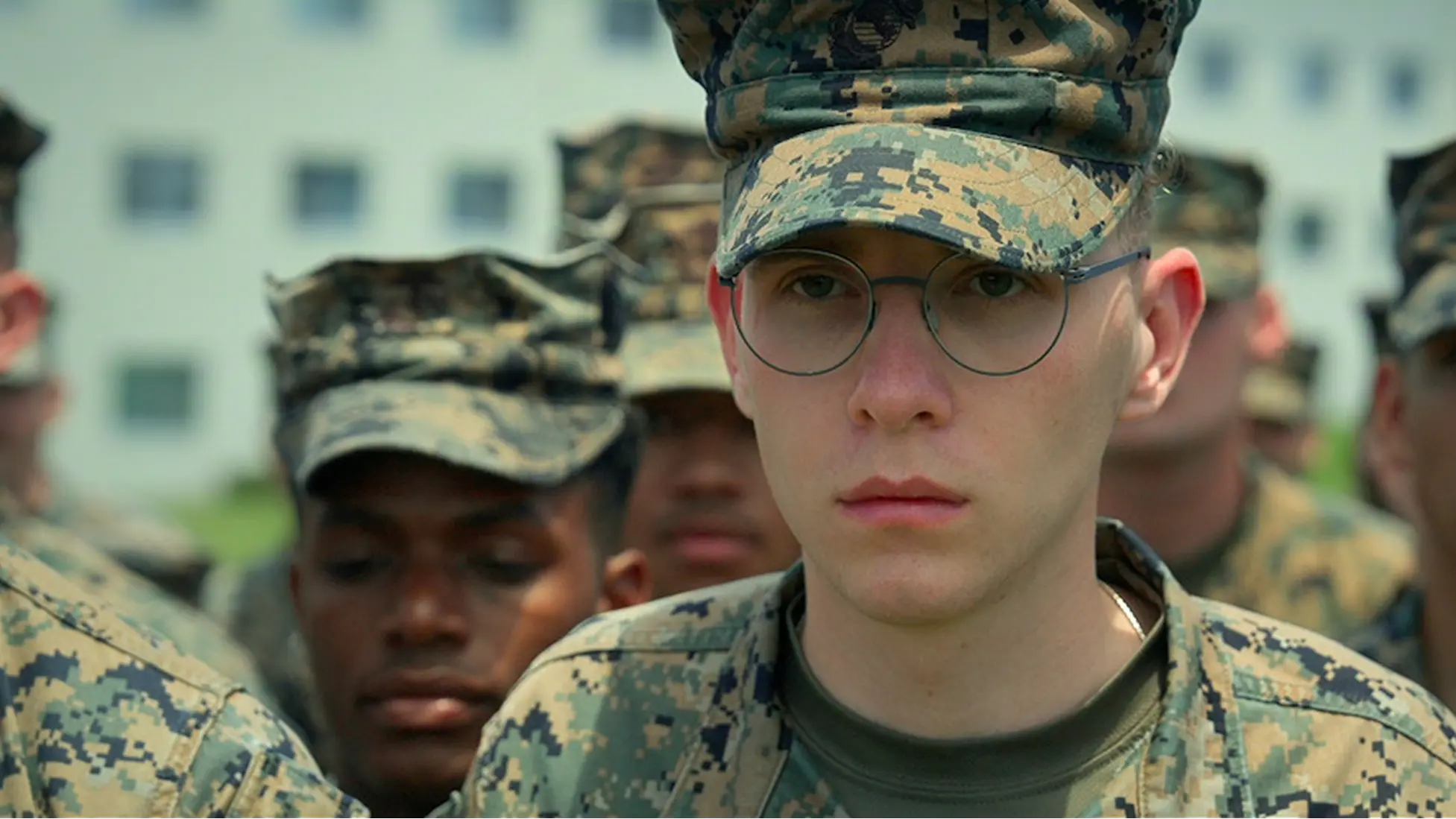Marines season 1 ending explained: Why was the port call canceled?
-
 Marines stand in formation during training, as seen in Netflix’s Marines season 1. (Image via Netflix)
Marines stand in formation during training, as seen in Netflix’s Marines season 1. (Image via Netflix)Marines season 1 ends with a clear turn from downtime to duty. The four-part Netflix docuseries follows the 31st Marine Expeditionary Unit aboard USS America and USS Green Bay as they train, sail, and wait for the next call. Directed by Chelsea Yarnell and produced by Amblin Documentaries and Lucky 8 TV, Marines season 1 builds its tension across four chapters that show CERTEX drills at sea and on shore.
Episode 2, Contested Waters, tracks a foreign spy ship shadowing the Navy task group. Episode 3, The Last Scout Sniper Platoon, stages a night beach raid that pushes the unit to its limit. The finale flips the routine. The ships move toward a port call, then “global events” change the mission. No destination is shown. The emphasis is on readiness and how young Marines balance orders with home life.
Marines season 1 ending explained
Marines season 1 closes with Episode 4, The Few, The Proud, beginning like a reset. The ships are set for liberty, and the crew's mood eases after hard drills. That calm is brief. Bridge updates roll in about “global events,” and the chain of command recalls people to stations. Liberty is off. Loadouts are checked. The camera stays on faces and compartments rather than maps, underlining that the story is about posture, not place.
The on-screen synopsis puts it plainly about the ships:
“The USS America and USS Green Bay head to port — until global events demand a sudden change in mission. At home, several Marines consider what's ahead.”
That answers the headline question most simply. The port call is canceled because real-world events require the 31st MEU to re-task. Marines season 1 shows the moment of change and stops short of showing where they go next, keeping focus on the unit’s readiness.
Across the hour, the finale ties back to earlier episodes, so the cancellation feels earned. Marines season 1 already showed the task group managing a spy ship in Contested Waters and practicing a blacked-out beach raid in The Last Scout Sniper Platoon. Those beats set the idea that drills can blur into deployment at any time. The series also frames the ethos up front. Troy Pozirekides stated,
“Ready, Partnered, Lethal.”
That lens helps explain the pivot from a planned liberty to a live tasking. The official description of episode 1, titled Roughest, Toughest Bastards, states,
“As the 31st Marine Expeditionary Unit prepares to deploy in the Pacific, they kick off grueling tests of combat readiness — and failure isn't an option.”
The finale echoes in its restrained but urgent pacing. In a separate interview about purpose and people, as per the Military Times report dated November 10, 2025, director Chelsea Yarnell remarked,
“I think what struck me about the people who were questioning that purpose had joined the Marines, hoping that their military service would be a cure-all, but it really wasn’t… was maybe just diving deeper into the question in a way that they weren’t anticipating."
What viewers see after the recall is practical. The ships stay at sea. Marines review gear. Leaders talk about what comes next without naming a port. The show then intercuts homefront reflections with the task group imagery. The message is clear. The canceled stop is not a failure. It is proof that the 31st MEU can change course when events demand it. The decision is the point, and Marines season 1 captures it without dramatizing beyond what the cameras record.
Key moments that decode the turn
The season seeds its own decoder ring. Marines season 1 begins with the blunt stakes of Episode 1, Roughest, Toughest Bastards, where the description stresses that “failure isn’t an option.” That line is a baseline for the finale’s tone when orders arrive. The training spine is CERTEX, which the series keeps returning to in sea and shore sequences, so the recall does not feel out of place. The spy ship thread from Contested Waters shows how routine days carry risk.
The night raid from The Last Scout Sniper Platoon shows how fast the unit can assemble and execute. The finale reflects in the three beats it chooses to show: readiness, coordination with the Navy, and a mission that turns without fanfare. The Episode 4 logline spells out the cause as “global events,” and the episode honors that by not naming a target or country on camera.
Stay tuned for more updates.